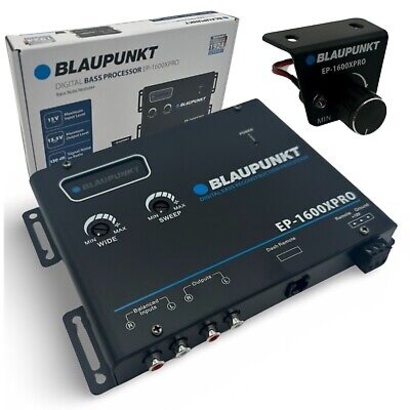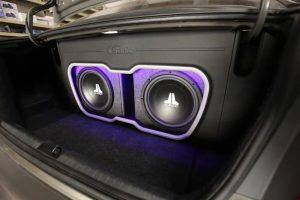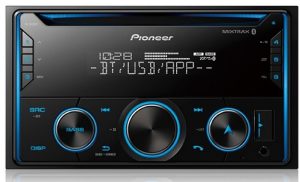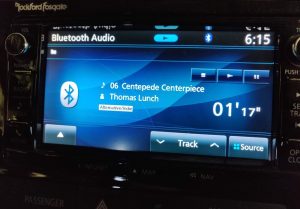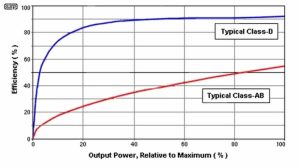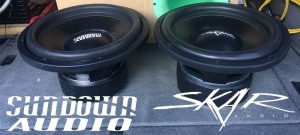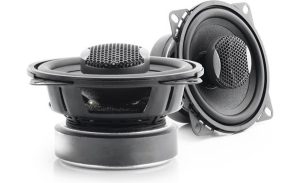Contents
What is a Bass Processor?
In the world of car audio, the term “Bass Processor” holds a certain mystique, often conjuring images of thumping beats and earth-shaking vibrations. But what exactly is a Bass Processor? Simply put, it’s a device designed to enhance and optimize the bass response in your car stereo system. As a fervent enthusiast of car audio, I’ve had my fair share of experiences with bass processors, each time uncovering more about their secrets and the profound impact they can have on the overall listening experience. Join me on a journey as we delve into the depths of bass processing, exploring its inner workings, benefits, and how it can transform your everyday drive into a sonic adventure.
Understanding the Bass Processor:
- Definition and Function: A bass processor is essentially a specialized audio component designed to enhance the low-frequency range of your car’s sound system. It works by analyzing the audio signal and applying specific adjustments to the bass frequencies, resulting in a more robust and impactful bass response.
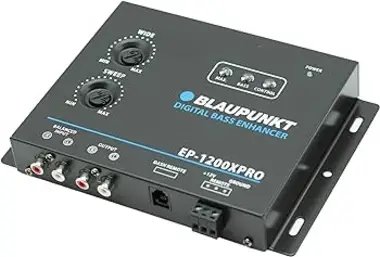
- Importance in Car Stereo Systems: Car environments can be acoustically challenging, with factors like road noise and cabin resonance often detracting from the quality of the audio. A bass processor helps overcome these obstacles by precisely shaping the bass frequencies, ensuring they punch through the noise and resonate with clarity.
The Experience of Using a Bass Processor in Your Car
- Personal Encounter with Bass Enhancement: When I first installed a bass processor in my car, I was blown away by the immediate difference it made to my audio setup. Suddenly, tracks I’d heard countless times sounded fuller and more immersive, with the bass hitting me right in the chest.
- Impact on Sound Quality and Performance: The bass processor elevated my entire listening experience, bringing out nuances in the music that were previously buried beneath muddy bass or drowned out by external noise. Not only did it enhance the low-end frequencies, but it also contributed to overall sound clarity and balance.
How Bass Processors Work
- Signal Processing and Equalization: Bass processors employ sophisticated signal processing algorithms to analyze and manipulate the audio signal in real-time. Through equalization techniques, they adjust the amplitude and frequency response of the bass frequencies, ensuring they are reproduced accurately and with impact.
- Adjustable Parameters and Customization: One of the beauties of bass processors is their versatility and customization options. Most models allow users to tweak various parameters such as bass boost level, crossover frequency, and subwoofer phase, enabling them to fine-tune the sound to their preferences and the acoustics of their car.
Benefits of Incorporating a Bass Processor
- Enhanced Bass Response: The most obvious benefit of a bass processor is the enhancement of low-frequency reproduction. Whether you’re a fan of hip-hop, electronic dance music, or rock, a BP ensures that every bassline and kick drum hits with impact, adding depth and energy to your favorite tracks.
- Improved Sound Clarity and Balance: By precisely shaping the bass frequencies, a bass processor contributes to overall sound clarity and balance. It prevents bass from overpowering the rest of the audio spectrum, resulting in a more cohesive and enjoyable listening experience.
- Tailored Audio Experience: With a bass processor, you’re in control of your audio destiny. Whether you prefer a subtle bass boost for laid-back cruising or a thunderous low-end punch for adrenaline-fueled drives, a BP allows you to tailor the audio to suit your mood and musical preferences.
Types of Bass Processors
- Built-in vs. Standalone Units: Some car audio head units come with built-in bass processing capabilities, allowing you to adjust bass settings directly from the head unit’s interface. Alternatively, standalone bass processors offer more advanced features and greater flexibility, often with dedicated control units for precise adjustments.
- Analog vs. Digital Processing: Analog bass processors manipulate the audio signal using traditional analog circuitry, while digital bass processors utilize digital signal processing technology for more precise and customizable adjustments. Both types have their merits, and the choice ultimately depends on your preferences and budget.
- Integration with Existing Systems: Whether you’re upgrading an existing car audio setup or starting from scratch, bass processors can seamlessly integrate with a wide range of car stereo systems. They typically connect between the head unit and the amplifier or directly to the amplifier, depending on the setup.
Installation and Setup Tips
- Positioning and Placement: When installing a bass processor, consider factors such as space availability, accessibility, and proximity to other audio components. Mount it securely in a location where it’s easily accessible for adjustments but protected from excessive heat, moisture, and vibration.
- Wiring and Connectivity: Follow the manufacturer’s instructions carefully when wiring the bass processor to ensure proper connectivity and compatibility with your car stereo system. Use high-quality cables and connectors to minimize signal degradation and interference.
- Calibration and Fine-Tuning: Once installed, take the time to calibrate and fine-tune the bass processor to optimize its performance. Experiment with different settings and adjustments to find the perfect balance between bass impact and overall sound quality.
Common Misconceptions and FAQs
- Myth-busting Bass Processor Stereotypes: Contrary to popular belief, a bass processor is not just for “bassheads” or enthusiasts obsessed with overpowering bass. When used judiciously, it can enhance the audio experience for all listeners, regardless of their musical preferences.
- Addressing Concerns and Queries: Some users may have concerns about the potential negative effects of bass processing, such as distortion or damage to speakers. However, when properly configured and used responsibly, a bass processor poses no risk to your car audio system and can actually prolong the life of your speakers by preventing clipping and distortion.
Conclusion
In conclusion, a bass processor is a game-changer for anyone seeking to elevate their car audio experience. From its ability to enhance bass response and improve sound clarity to its customizable features and seamless integration with existing systems, a bass processor offers a myriad of benefits for audiophiles and casual listeners alike. So why settle for mediocre sound when you can unleash the full potential of your car stereo with a bass processor? Whether you’re cruising down the highway or stuck in traffic, let the power of bass take your driving playlist to new heights.
